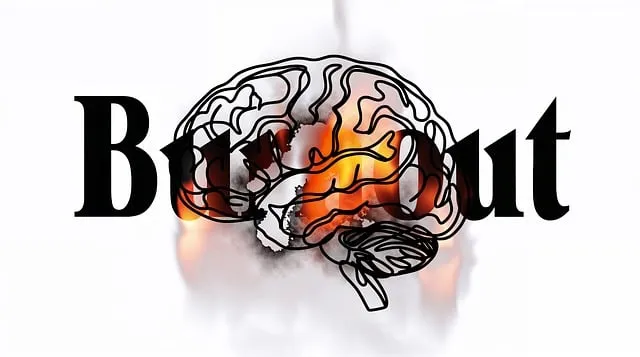Boulder Kaiser Permanente psychiatry promotes mental well-being through the RFM framework (Recovery, Flexibility, Mastery), offering specialized workshops and tailored interventions to build resilience. Combining evidence-based practices with Mind Over Matter principles, their expert team equips individuals with tools to overcome adversity, adapt to change, and develop effective coping strategies. Integrating mindfulness meditation, social skills training, and depression prevention strategies, Boulder Kaiser Permanente psychiatry enhances mental health policy analysis and empowers clients to navigate life's challenges with resilience and equanimity.
In today’s fast-paced and often stressful world, building mental resilience is more crucial than ever. This comprehensive guide explores the RFM framework—a powerful tool for enhancing resilience—with a special focus on the contributions of Boulder Kaiser Permanente Psychiatry. We delve into practical exercises and strategies to integrate RFM into daily life, fostering long-term wellbeing and helping you navigate life’s challenges with greater ease.
- Understanding RFM: A Framework for Resilience
- The Role of Boulder Kaiser Permanente Psychiatry in Resilience Building
- Practical Exercises to Enhance Mental Resilience
- Integrating RFM into Daily Life: Strategies for Long-Term Wellbeing
Understanding RFM: A Framework for Resilience

Resilience is a critical component of overall mental health, enabling individuals to bounce back from adversity and navigate life’s challenges with greater ease. At Boulder Kaiser Permanente psychiatry, we recognize that building resilience is akin to shaping inner strength. The RFM framework—a powerful tool in our arsenal—is designed to help individuals develop this strength by fostering adaptability and resilience.
RFM stands for Recovery, Flexibility, and Mastery, three key pillars that underpin the development of inner strength. Our Stress Management Workshops Organization offers structured programs and exercises tailored to enhance each of these aspects. By focusing on recovery, we equip individuals with coping mechanisms to overcome setbacks; flexibility helps them adapt to change; and mastery empowers them to take control of their thoughts and actions. Through this holistic approach, we aim to strengthen mental health policy analysis and advocacy by empowering people to become more resilient in their daily lives.
The Role of Boulder Kaiser Permanente Psychiatry in Resilience Building

Boulder Kaiser Permanente Psychiatry plays a pivotal role in resilience building by providing evidence-based practices that empower individuals to navigate life’s challenges. Their expertise lies in integrating Mind Over Matter principles into therapeutic frameworks, fostering not just coping skills development but also deep self-awareness exercises. Through tailored interventions, they guide patients towards cultivating mental fortitude, enabling them to thrive even amidst adversity.
The team at Boulder Kaiser Permanente Psychiatry recognizes that resilience is a dynamic process, and their approach is designed to support individuals at every stage. By offering a range of therapeutic modalities, they help clients develop effective strategies for stress management, emotional regulation, and overall well-being. This holistic perspective ensures that people not only cope with current challenges but also build lasting resilience to future obstacles.
Practical Exercises to Enhance Mental Resilience

Building mental resilience is an essential aspect of well-being, and there are practical exercises that can help individuals navigate life’s challenges with greater fortitude. At Boulder Kaiser Permanente psychiatry, experts emphasize the importance of integrating resilience-building techniques into daily routines. One effective method is mindfulness meditation, which encourages individuals to focus on the present moment, thereby reducing anxiety and stress related to past or future events.
Additionally, social skills training plays a pivotal role in enhancing resilience. Developing strong interpersonal connections and fostering cultural sensitivity in mental healthcare practice can significantly contribute to an individual’s ability to cope with adversity. Depression prevention strategies, such as encouraging physical activity and maintaining a structured daily routine, are also valuable tools. These practical exercises empower individuals to take control of their mental health and build a resilient foundation for navigating life’s complexities.
Integrating RFM into Daily Life: Strategies for Long-Term Wellbeing

Incorporating Resilience and Frequency Measurement (RFM) techniques into daily routines can significantly enhance mental wellness, as exemplified by the Mental Wellness Podcast Series Production from Boulder Kaiser Permanente psychiatry experts. RFM is not just a tool; it’s a lifestyle approach that fosters resilience against life’s challenges. Simple self-awareness exercises, such as regularly reflecting on recent experiences and their emotional responses, can help individuals understand their triggers and build coping mechanisms.
For long-term wellbeing, integrating RFM involves creating structured routines that include mindfulness practices, regular physical activity, and healthy sleep habits. These strategies not only improve burnout prevention but also promote a deeper sense of self-awareness and control over one’s emotional responses. By making RFM an integral part of their daily lives, individuals can cultivate mental resilience, ensuring they navigate life’s twists and turns with greater equanimity and confidence.
Boulder Kaiser Permanente psychiatry emphasizes the power of resilience as a cornerstone of mental wellbeing. By understanding and applying the RFM framework, individuals can navigate life’s challenges with greater strength. Practical exercises detailed in this article offer actionable steps to enhance mental resilience, which, when integrated into daily life, foster long-term emotional stability. Embracing these strategies enables folks to thrive, even amidst life’s complexities, thanks to the expert guidance available at Boulder Kaiser Permanente.




